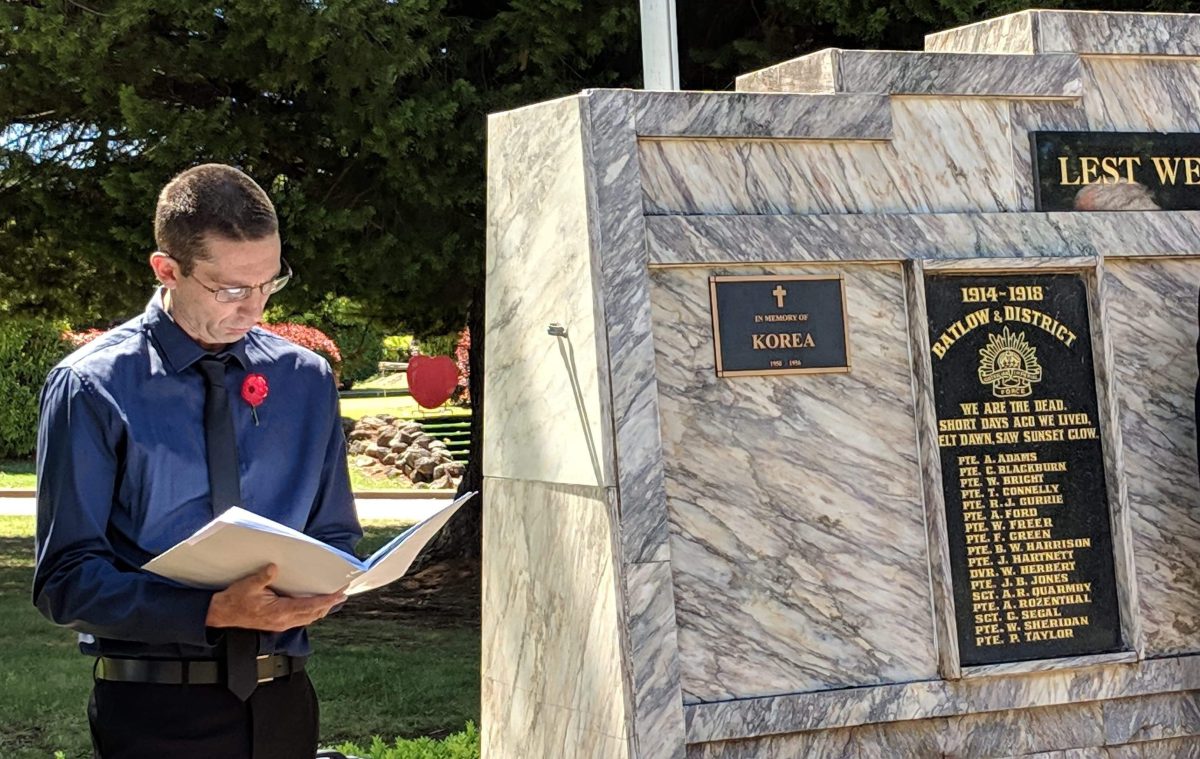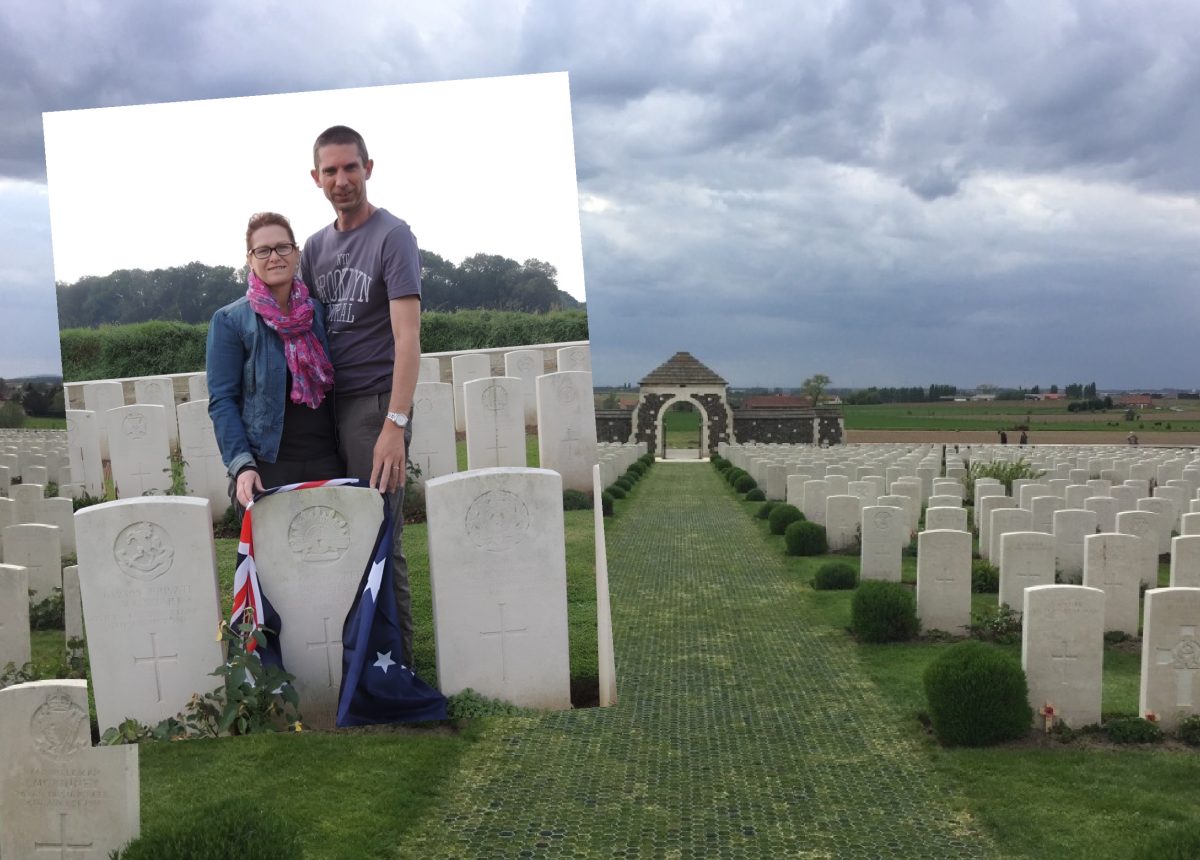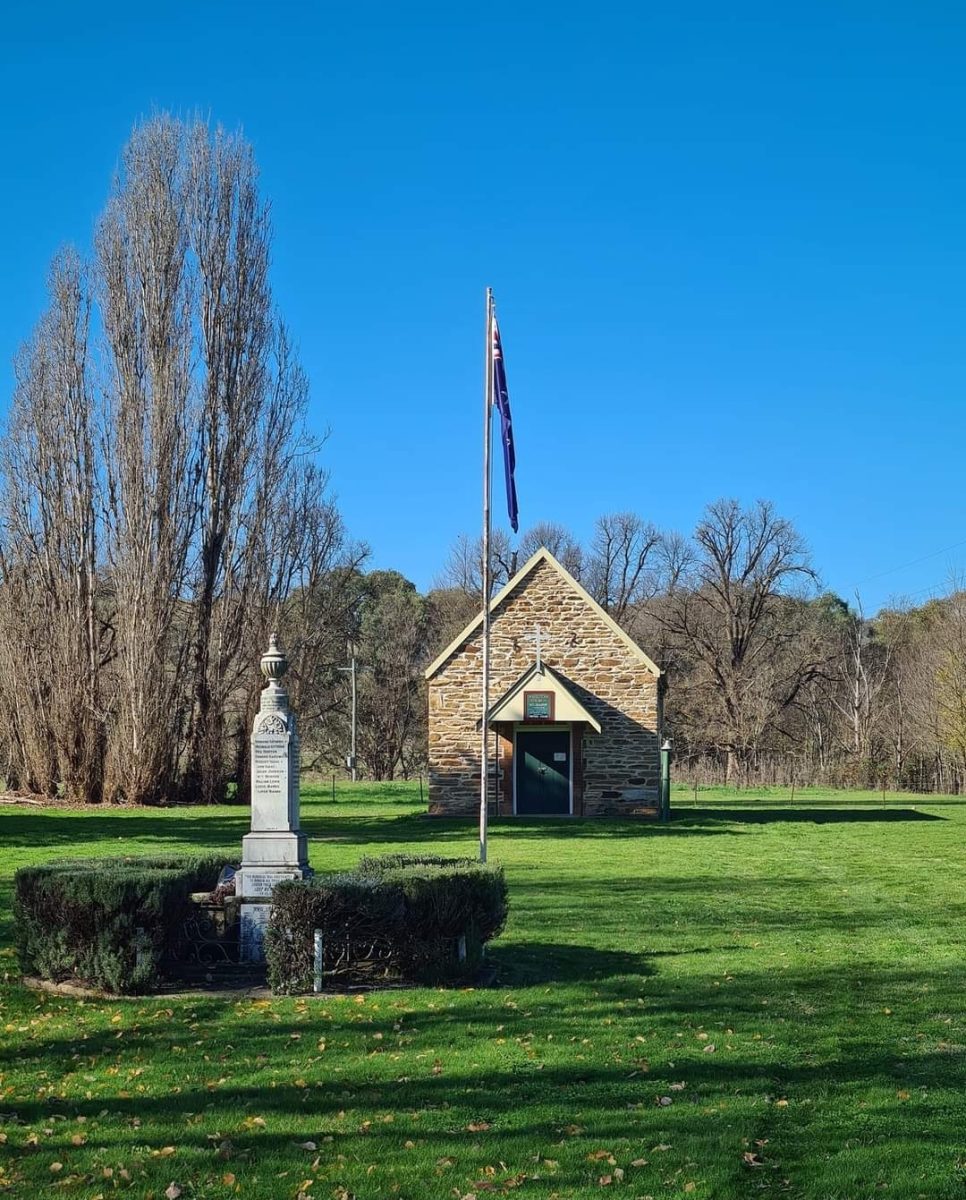
Standing beside the Batlow cenotaph, Kevin Murrell reads about a soldier he and Jo have researched. Photo: Supplied.
On a cool September day in Belgium, Kevin and Jo Murrell decided that they would tell the story of every First World War serviceman listed on the cenotaph of their hometown, Batlow.
It was 2014, and the married couple stood at Tyne Cot Cemetery, a site where 11,965 soldiers are buried. In October 1917, it was the scene of fierce action during the Battle of Passchendaele, with the 3rd Australian Division eventually overrunning the German positions to control the small rise.
Tyne Cot is the largest Commonwealth War Graves Commission cemetery in the world. Guarded by an imposing wall of flintstone, the headstones are interceded with old German concrete pillboxes to give the sacred place an imposing presence.
On that fateful day, Kevin turned to his wife and said: “Look around you, every one of these men have a story.
“I can still remember the moment,” Kevin continued. We were standing in front of the grave of Victoria Cross recipient, Sergeant Lewis McGee, and it just sort of hit us,” he said.
The two Australians vowed to return home and tell the story of the Batlow men who had served their country selflessly during the Great War.

Kevin and Jo Murrell stand behind the gravestone of Kevin’s great-grandfather, Sapper William Wrathall, in northern France. Photo: Supplied.
Reflecting on the project, Kevin and Jo recalled the experiences that led them on a path that exceeded their own expectations.
“It took eight years, in total, to research all the names on the Batlow cenotaph and make a few corrections,” Kevin said.
“But after a lot of hard work and some dead ends, we finally got there.
“We also did a PowerPoint presentation of every soldier at a special ceremony, and we tied it all back to Batlow. Everyone really loved it: it made it personal.”
The work that the local husband and wife do for families and individuals has now spread way beyond the mountain town of Batlow. Calls and emails are received from all over the world through their website Beyond the Front Line, while Kevin was awarded the honour of becoming a Paul Harris Fellow in 2019.
Since the life-changing 2014 trip that also allowed Kevin to pay his respects to his great grandfather, William Wrathall, Kevin and Jo have made another journey to France, while Kevin has also made two trips to Papua New Guinea and the famous Kokoda Track.
This exploration into another generation of Australian service men and women has broadened the scope of what they do, and for Kevin it provided one of the most emotional moments he has experienced.
“I always wanted to do Kokoda,” Kevin said, “so handing Chris Dyer from Cam’s Cause a folder about his grandfather’s service history, while in New Guinea, was a very emotional moment.”
Cam’s Cause is just one example of the reach Kevin and Jo have had during their endeavours, which led to the question of what next.
“I am heading back to Kokoda in August, and then Jo and I are travelling to Gallipoli in September,” Kevin said.
“We are really looking forward to that trip after years of planning.”
In addition, the Murrells would like to continue their locally based work, by focusing on the small memorials around the Riverina.
“It would be good to share the stories of the little communities,” Kevin said.
“Places like Tumblong, Humala, Mannus and many others have memorials to our veterans.”

The Tumblong memorial, and others like it, represent a new stage in the work of Beyond the Front Line. Photo: Supplied.
While their work is evolving, some things never change for the Murrells, and that is the personalisation of their service. Jo explained how each new research project was unique, requiring good communication skills and an understanding that the information that people brought forward had often been passed down verbally over generations.
“We like to sit down and have a conversation with the client, and get to know them,” Jo said.
“The information that people have is often family folklore, so you have to take your time.”
Kevin added that their motivation has never changed, as he thought back to that special moment in Belgium.
“Our aim is to remember our diggers the best we can, one at a time.”
Original Article published by Michael Murphy on Region Riverina.






